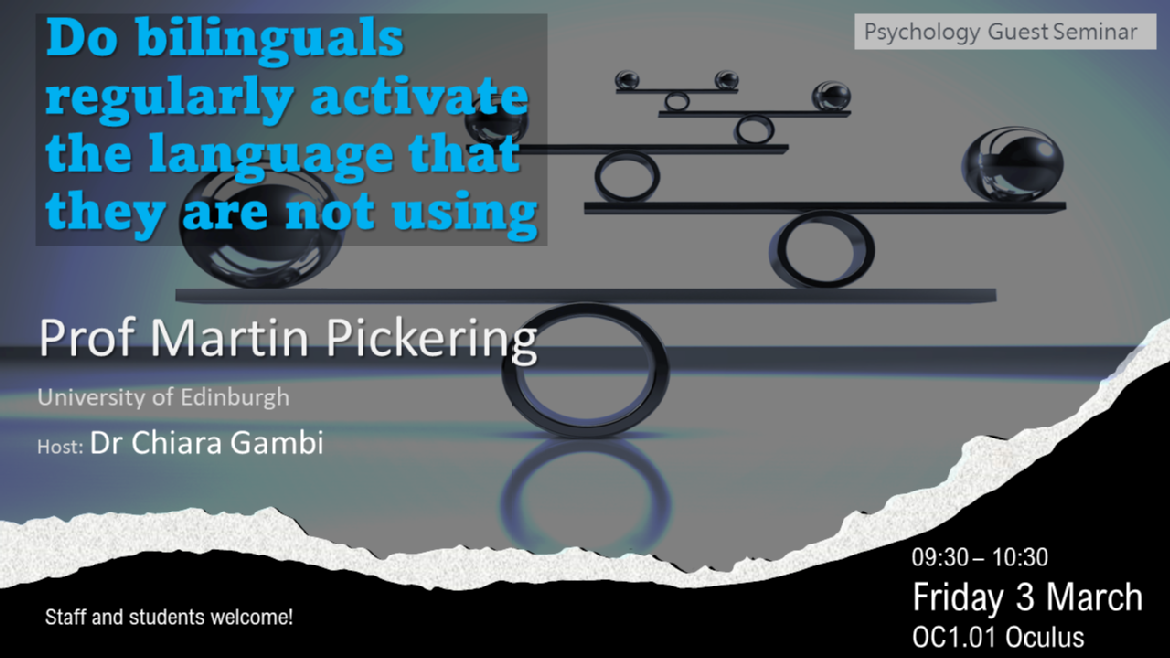Calendar of events

Friday, March 03, 2023
-Export as iCalendar |
Guest Speaker: "Do bilinguals regularly activate the language that they are not using?" Professor Martin Pickering, University of Edinburgh - Note new time and venueOC1.01 OculusSpeaker: Professor Martin Pickering Title: Do bilinguals regularly activate the language that they are not using? Host: Dr Chiara Gambi Abstract: Almost all researchers claim that bilinguals access both of their languages, even when they are just comprehending or producing one of them. In this talk, we critically review the range of evidence used to support this claim and argue that it is compatible with an alternative (selective) account in which bilinguals consider only the language they are currently using. For example, we suggest that studies showing priming between unrelated words whose translations are related can be explained by transfer during learning, and studies suggesting that cognates are facilitated in comparison to non-cognates can be explained by facilitated acquisition. We also consider a range of other phenomena from comprehension and production that do not necessarily support language non-selectivity. We argue that such learning may occur during early acquisition and then simply be turned off, or it may continue as a consequence of language use in a two-language mode. We discuss the implications of the account for bilingual language use more generally. This is joint work with Rob Hartsuiker (Ghent). Teams link to view talk live available from Catherine Johnstone
See archive of Previous speakers here |


